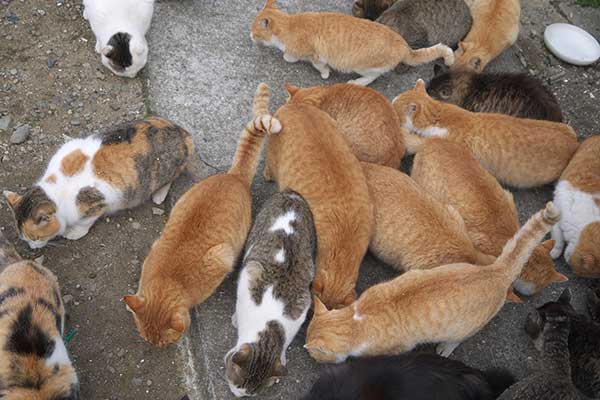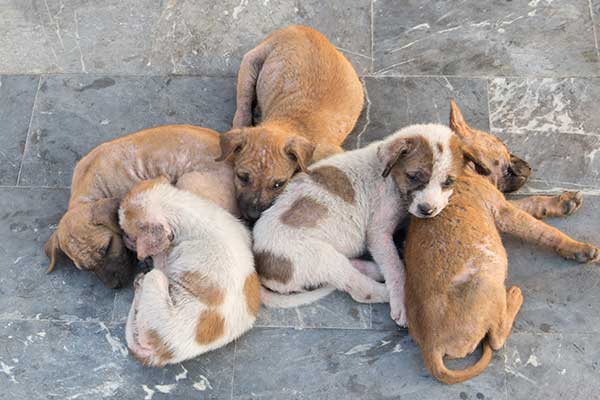It can seem to an outsider that hoarding animals is inhumane and a form of cruelty for without proper care, animals become malnourished and diseased. To the person hoarding all the animals, however, each animal is important to them and the person sees themselves as the animal’s rescuer, the one who loves each creature great and small, and they do not allow themselves to see the deplorable conditions the animals are living in.
A person who hoards animals has several characteristics:
- Keep more than the usual number of animals on their property.
- They are unable to provide minimal care in the areas of nutrition, sanitation, medical care, and shelter, the results of which can be illness and death.
- The individual is in denial of their inability to provide adequate care and don’t acknowledge the resulting impact on the animals, the building, themselves, and the other people in the home.
The hoarding of animals usually results from a variety of mental disorders such as depression, personality disorders, paranoia, and sometimes occurs after a traumatic loss. Thus, it’s important to treat the person hoarding the animals with respect and to gain their trust as their animals mean a great deal to them.
The dangers of animal hoarding
Without staying on top of the care of animals, a home can quickly deteriorate and pose a risk not just to the animals, but to the people living there as well. Both animals and humans can experience a wide variety of disease via animal hoarding and it’s important for family and friends to step in to help their loved one when the loved one can’t see the immense harm it’s causing to themselves and others.

How to help
If you know the person hoarding the animals, first try to help them see the care the animals urgently need and the ensuing health hazards to their own bodies. Your loved one is probably afraid of losing the animals or they think the animals will be killed if taken from the home. Though sometimes animals are beyond the point where treatment would help, the majority can be treated and rehomed. Sometimes, a select few are even returned to the hoarder once the premises are thoroughly cleaned.
If you are unable to convince them to give up the animals voluntarily, then there are several local resources you can call depending on where you live. People who can help or refer you to other services includes:
- Police Departments
- Animal Rescue Shelters
- Veterinarians
- Humane Societies
Even though animal hoarding is a mental disorder, legal action under animal cruelty laws can help someone hoarding animals since a judge can order the person to undergo counseling or the judge can prohibit an individual from keeping any more animals in their home. Though such action can be difficult, it is for the health and safety of all involved including the hoarder themselves.
Hazards still need to be dealt with after animals are removed
Taking the animals out of the home is only a part of the process. Once the animals are removed, there are still numerous hazards needing to be professionally cleaned before the property is livable for human or animal occupancy. As animal hoarding is often accompanied by other hoarding issues, there can be multiple hazards including:
- Pests: A variety of disease-carrying pests including fleas, mice, and insects are often found in homes with lots of animals.
- Feces: Whether from a pet, pest, or a human, feces can carry a wide variety of diseases and bacteria.
- Urine: Especially common with cats, ammonia builds up over time and is toxic to both humans and animals.
- Vomit: When there are sick animals in a hoarding situation, vomit can carry disease and prove harmful.
- Dead Animals: Dead animals who have passed away are often found in the home and on the property of someone who has hoarded them. The bodies left behind can be full of bacteria, blood-borne pathogens, and other diseases.
- Rotten Food and Garbage: Garbage and food refuse from both humans and animals builds up harboring disease and mold.
- Structural Issues: Without proper care, structures deteriorate and can pose a safety risk to any human or animal.
Stay safe with a professional hoarding cleaning company
Cleaning up a animal hoarded home after the animals have been removed is never something you want to handle yourself. In order to safely clean an animal hoarding home, it’s important to hire a professional hoarding cleaning company to come do the job. Hoarding cleaning technicians will not only have personal protective gear, respirator masks, professional equipment, and industrial grade cleaners to properly clean the refuse left behind, but they also know how to properly use each tool to make sure the area is truly clean and safe to use. With professionals, you know you have people who will clean the hazards both seen and unseen so you’ll have peace of mind that you and your loved ones are safe.
For further help
If you have any questions about animal hoarding or how to make a property livable again once the animals have been removed, please give us a call and we will be happy to help you.

